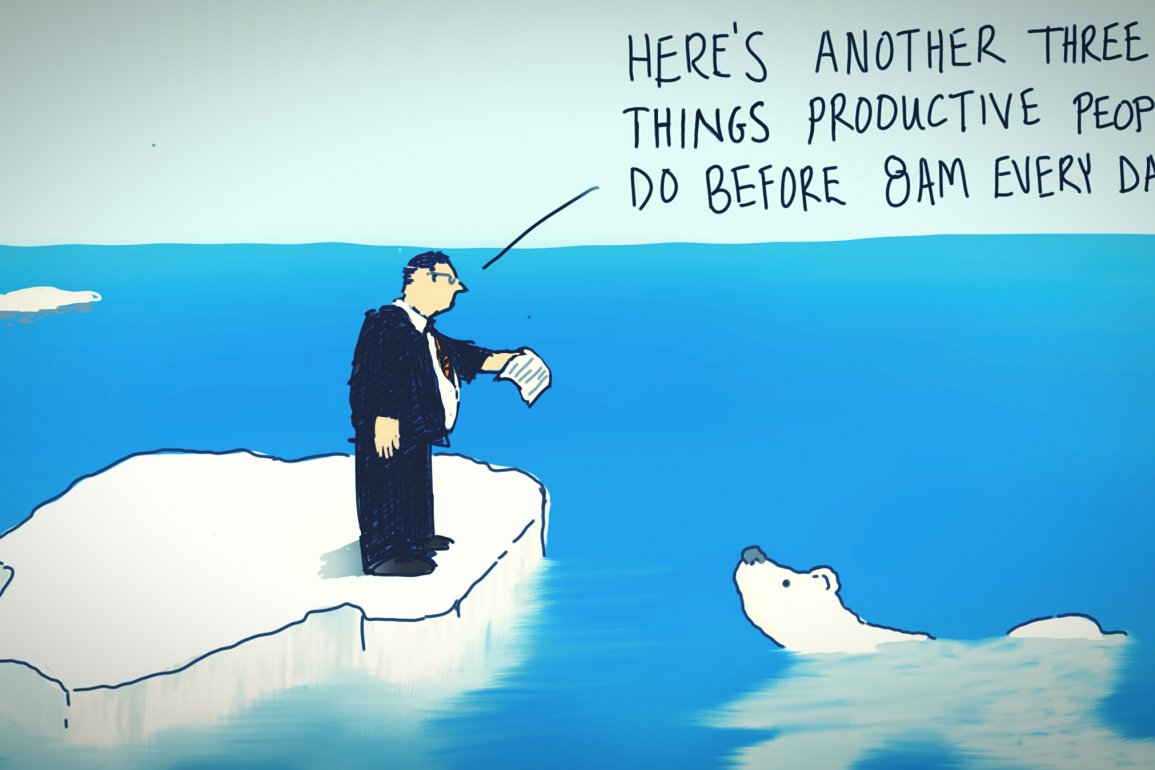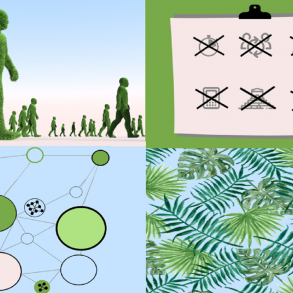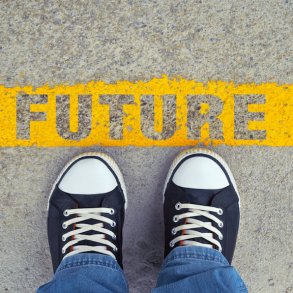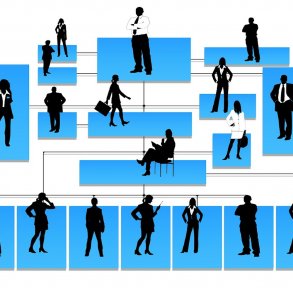By Chris Clark for Enlivening Edge
This is what the social sea deposits daily on my digital shore: heaping, writhing schools of words, washed up in my inbox, gasping their last breath. Articles on management, leadership, productivity, organizational change, all delivered to me nightly, all dead on arrival.
“Solving the Millenial Dilemm” — DELETE. (Millenials in our workplaces are people to meet, not a problem to solve.)
“Ten Apps to Become More Produc” — DELETE. (Since 1979, productivity has risen eight times faster than compensation.)
“The Leadership Secret all Fortune 50 CEO’s Share in Comm” — DELETE. (Financial success is not an indicator of leadership; in fact, the more financially successful a company becomes, the more leadership appears as a threat.)
Some of us can stomach anything; others are more delicate. Some of us can eat a watermelon and spit out the seeds, or broil a trout and pick around its bones. Not me. My steady diet of improvement is making me sick.
I am accountable to myself, as well as the people and communities and organizations I serve, to learn, improve, and grow. But reading popular business lit, not only do I seldom learn much of anything, but the worse I feel about the world and myself.
Take this morning’s example, washed up from the New York Times: “Unless You’re Oprah, ‘Be Yourself’ is Terrible Advice.” The author makes the case that people who tend to be “low self-monitors,” prioritizing authenticity over social conformity (and by the way, women tend to be lower self-monitors than men,) are typically less successful in corporate environments. This is somewhat of a new thing, he writes:
“We are in the Age of Authenticity, where ‘be yourself’ is the defining advice in life, love, and career. Authenticity means erasing the gap between what you firmly believe inside and what you reveal to the outside world. As Brené Brown, a research professor at the University of Houston, defines it, authenticity is ‘the choice to let our true selves be seen.'”
The author concludes that we should stop doing that, if we’re going to get ahead.
Well, no thanks. That’s the kind of thinking that makes me despair and the kind of diet that makes me sick. The author gets at least one thing right when he identifies that a new Age is dawning. Yes it is, and we’re in between worlds.
The Great Ice Age is coming to an end; the status quo is melting.
What comes next will require something completely different.
Thus I’ve decided to hit “unsubscribe” out of this conviction: that I must avoid at all costs what is toxic to myself and to the world I want to create.
That means discerning and avoiding any demands on my attention that reinforce:
- Behaviors that don’t actually make a difference
- Perspectives that limit our capacity to make a difference
- Mindsets that cause us to act from fear of difference: scarcity, comparison, and ego
Difference must be the focus because without it, we will continue to be held rapt while the ice melts beneath us. Then we’ll wish we’d learned something different. Like, how to swim.
So no, I don’t care particularly about how to engage employees. Engagement is a natural consequence of people caring about things. Teach me how to care more deeply, more passionately, and with more commitment. Tell me how to liberate people to act on the things they care about. Then I’ll read.
I’m not trying to climb the ladder. The status quo is a world of ladder-climbers evaluating their worth by rungs. Teach me instead how to cultivate wisdom and mastery, so I can make a difference and enjoy a life of progressively deeper insight and influence among the places I’m invested.
I don’t need to figure out how to squeeze more productivity into each day. The worst thing I could do, in fact, is to become more adapted to a world that doesn’t value my quality of life, when what I need instead is to become more adaptable, more comfortable and responsive to the Unknown.
Being a world-class figure-skater is great during an Ice Age. It’s absolutely useless after the ice melts. But until it does, before the transition, devoting your time to learning the breast-stroke looks like madness. It looks weird.
But that’s really what people are.
When I tell people we need to become weirder, they imagine I’m advocating for a workplace where people wear tinfoil hats and talk in pig-latin or something. But as the New York Times demonstrates, a commitment to internal and external congruence in the workplace is talking crazy. Showing up fully present, in a courageous conversation? Graduate level stuff. Last month, I watched in disbelief as the regular commentators on a popular cable news network scoffed, exchanging sidelong glances, as they related the story of a university choosing to instate a diversity class as common curriculum for every student.
“You can’t teach diversity,” said one panel expert. “Besides, why would we need to?”
Well, the world is shrinking, complexity is galloping, and the seams holding the empire together are unraveling. The ice is melting… but why should we learn to swim?
Fortunately, the necessity of swimming is increasingly on everyone’s radar, as evidenced by big-four consulting firm Deloitte concluding that redesigning the organization is the number one human capital trend for 2016.
But it’s not enough to redesign the organization if you’re still committed to the underlying tenets that gave rise to its structure in the first place, a kind of logic suggesting the rearrangement of deckchairs on the Titanic, or apps on a Blackberry. Simply shuffling things around is not enough. We have to reconsider what organizations are, what they’re for, what’s possible within them. We have to learn how to be more human. And we need to hit “unsubscribe” on anything that keeps us from doing that.
I certainly haven’t figured it out. But if you have, or if you’re trying to, maybe write down what you’ve learned so far.
I’ll read it.

Chris Clark partnered with Frederic Laloux and others to create the Reinventing Organizations Wiki, and Discourse sites. He lives in the shadow of the mountains near Seattle, Washington, helping guide organizations near and far transitioning to teal structures and practices.





Great post Chris. Edith told me to check it out and I concur with a lot of what you’ve said (to the point that our experiences are almost identical in nature and feeling, even seeing a similar article that says to avoid trying to be authentic).
For myself, I’m trying to look at this transition from a greater context beyond just business (but at the same time recognize it’s the obvious place to start). In effect, it affects not just the way we work but the way we learn and even play as well. All three of those words take on a newer greater meaning as they entwine and weave around each other becoming one.
For myself (which almost mirrors your struggle in setting up your video channel), I’m struggling to create a website or magazine that encapsulates and expresses all that I’ve discovered and wish to share in turn. Like you, I want to create a space that avoids all these productivity posts and gets to the heart of having the courage to be our authentic selves and express ourselves creatively in the process. It’s going to be called Be Real Creative.
Like you initially, I can’t seem to find the right chemistry for it though. I know I want it to be the kind of website that I would have wanted to read when I began my journey but no matter how I try to structure it, it seems to not feel right. I know how I want it to be but still struggle to manifest this in structural form. I realize you often need to just play and experiment but doing so still doesn’t create what I want but instead repeats what I don’t want. And that’s where the frustration comes into play, there’s this awareness that you’re repeating the same thing (like subscribing and reading useless productivity posts) but you can seem to find the right structure that lets you flow out of the negative feedback loop and into a more positive one.
Like you though, I keep playing and experimenting. It feels so close.
Thank you for speaking this.
Hello Chris, I have been noticing for a long time (meaning several years) that we need to train our subtle sensing regarding these matters of where we need to be or not (which conference or gathering to choose, when so many these days are happening and seem to be inspiring), and also what kind of information we take in or just delete. Using the subtle sensing, you don’t need to read the articles first, you can use more of your intuition to delete, or just dive more into it. The more you try this the better your sensing becomes!
Regarding your TV-channel, and what Nolling spoke about… I wonder if it has to do with trying to figure out something on your own, instead of teaming up with a core team, or at least a team that can give you feedback, can challenge your assumptions, can give you more and deeper questions… just a thought… These complex times need more synergies created in fully functioning and flowing teams, less of our individual work. My guess.
Hello Chris! I wasn’t aware that you were involved with this. Not sure how that escaped me, but I’m paying attention now! I’ve been reading Reinventing Organizations with a particular client, and now I want to explore this website.
I appreciate your comments above. What you say resonates for me in the context of authentic leadership (that is, ALIA), that being for me the kind of or approach to leadership that is helpful now – “we have to learn to be more human.” There are emerging Authentic Leadership Communities of Practice in the Seattle area, Boulder, and several in Europe.
I’d love to have a conversation with you one of these days.
Warmly,
Steve Byers
OSR13
Olympia, WA
This was just what I needed to read today. Thanks for sharing your wisdom.